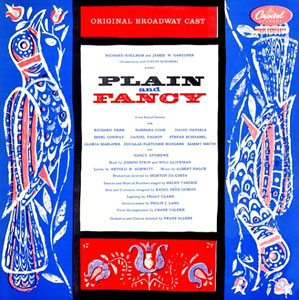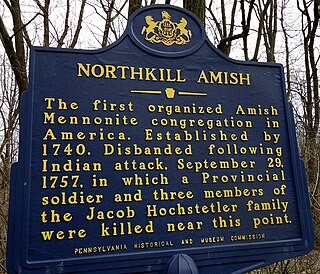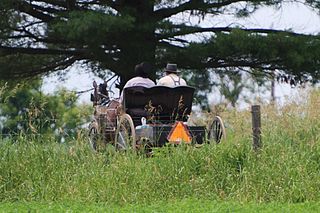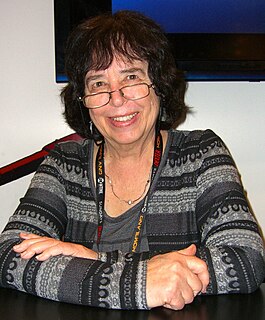
Witness is a 1985 American crime thriller film directed by Peter Weir and starring Harrison Ford and Kelly McGillis. The screenplay by William Kelley, Pamela Wallace, and Earl W. Wallace focuses on a detective protecting a young Amish boy who becomes a target after he witnesses a murder in Philadelphia.

"Amish Paradise" is a 1996 single by parodist "Weird Al" Yankovic. It is a parody of the hip hop song "Gangsta's Paradise" by Coolio featuring L.V.. Featured on the album Bad Hair Day, it turns the original "Gangsta's Paradise", in which the narrator laments his dangerous way of life, on its head by presenting an Amish man praising his relatively plain and uncomplicated existence.
Wisconsin v. Jonas Yoder, 406 U.S. 205 (1972), is the case in which the United States Supreme Court found that Amish children could not be placed under compulsory education past 8th grade. The parents' fundamental right to freedom of religion was determined to outweigh the state's interest in educating its children. The case is often cited as a basis for parents' right to educate their children outside of traditional private or public schools.

Plain and Fancy is a musical comedy with a book by Joseph Stein and Will Glickman, lyrics by Arnold Horwitt, and music by Albert Hague. One of the first depictions of an Amish community in American pop culture, it includes a traditional barn raising and an old-fashioned country wedding. The musical ran on Broadway in 1955-56, and has been produced yearly at the Round Barn Theatre in Nappanee, Indiana since 1986.

Joseph Stein was an American playwright best known for writing the books for such musicals as Fiddler on the Roof and Zorba.
Marguerite de Angeli was an American writer and illustrator of children's books including the 1950 Newbery Award winning book The Door in the Wall. She wrote and illustrated twenty-eight of her own books, and illustrated more than three dozen books and numerous magazine stories and articles for other authors.
Julia Mae Spicher Kasdorf is an American poet.

The Northkill Amish Settlement was established in 1740 in Berks County, Pennsylvania. As the first identifiable Amish community in the new world, it was the foundation of Amish settlement in the Americas. By the 1780s it had become the largest Amish settlement, but declined as families moved elsewhere.
Joseph Yoder was an educator, musicologist, and writer, the first successful Mennonite literary figure in the United States, especially known for his semi-fictional account of his mother's life, Rosanna of the Amish (1940), and for his investigation of the sources of the Amish tunes of the Ausbund, along with his efforts to record and preserve traditional Amish music.
The Amish have been portrayed in many areas of popular culture.
Wes Yoder is the founder of Ambassador Agency Inc., a Christian-based literary agency and speakers bureau. He was raised on a dairy farm in the Amish and Mennonite community of Lancaster, Pennsylvania and currently resides in Franklin, Tennessee with his wife.
Kingdom of Simplicity is a novel by American author Holly Payne published in June 2009. It is Payne's third novel.
Amish families and communities maintain a more primitive lifestyle than the surrounding culture. Amish believe large families are a blessing from God. Amish rules allow marrying only between members of the Amish Church. The elderly do not go to a retirement facility; they remain at home.

As time has passed, the Amish have felt pressures from the modern world. Their traditional rural way of life is becoming more different from the modern society. Isolated groups of Amish populations may have genetic disorders or other problems of closed communities. Amish make decisions about health, education, relationships based on their Biblical interpretation. Amish life has influenced some things in popular culture.

Amish Tripathi is an Indian author, known for his novels The Immortals of Meluha, The Secret of the Nagas, The Oath of the Vayuputras, Scion of Ikshvaku and Sita: Warrior of Mithila. The first three books collectively comprise the Shiva Trilogy and the later two are the first two books of the Ram Chandra Series which is going to be a collection of five books. The Shiva Trilogy was the fastest selling book series in Indian publishing history while the Ram Chandra Series was the second fastest selling book series in Indian publishing history. Amish recently launched his first non-fiction book called Immortal India.

The Stahly–Nissley–Kuhns Farm is a historic farm located at Nappanee, Elkhart County, Indiana. Nappanee was established in 1874. The Farm is part of Amish Acres, which includes the old farmstead and additional structure brought in to show Amish life.
The "Christian Communities" were Christian intentional communities with an Anabaptist worldview, founded and led by Elmo Stoll, a former Old Order Amish bishop. They were founded in 1990 and disbanded some two years after Stoll's early death in 1998. At the time of Stoll's death there were five "Christian Communities", four in the U.S. and one in Canada. G.C. Waldrep calls them "perhaps the most important "para-Amish" group".










